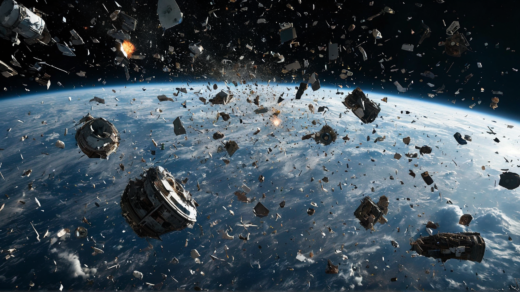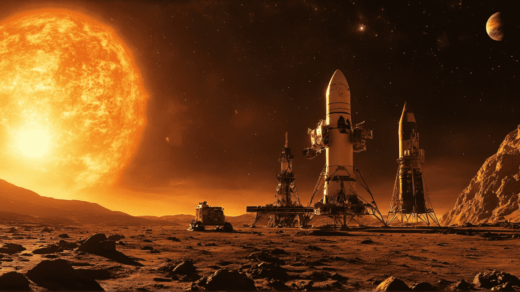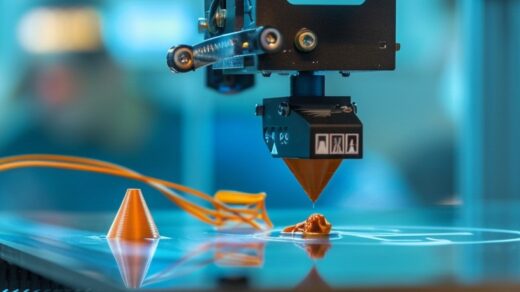In the vast expanse of the cosmos, where human limitations are constantly tested, artificial intelligence (AI) has emerged as a game-changing force in our quest to explore the unknown. As someone who’s been following space exploration developments for years, I can’t help but marvel at how AI is revolutionizing every aspect of our cosmic endeavors.
From the way we plan missions to how we analyze data from distant galaxies, AI is pushing the boundaries of what’s possible in space exploration.
Let’s dive into this fascinating intersection of cutting-edge technology and humanity’s oldest dream: reaching for the stars.
The Dawn of AI in Space: A Brief History
I remember when AI in space was the stuff of science fiction. But times have changed! The journey of AI in space exploration has been nothing short of remarkable. It all started with simple algorithms helping to crunch numbers for orbital calculations.
NASA first used AI for the Deep Space 1 mission in 1998 – it felt like we were witnessing the future unfold before our eyes!
From those humble beginnings, AI has grown by leaps and bounds. We’ve seen it evolve from basic data processing to complex systems capable of making real-time decisions in space.
The Mars Pathfinder mission in 1997 used an early form of AI for navigation, and that was just the beginning.
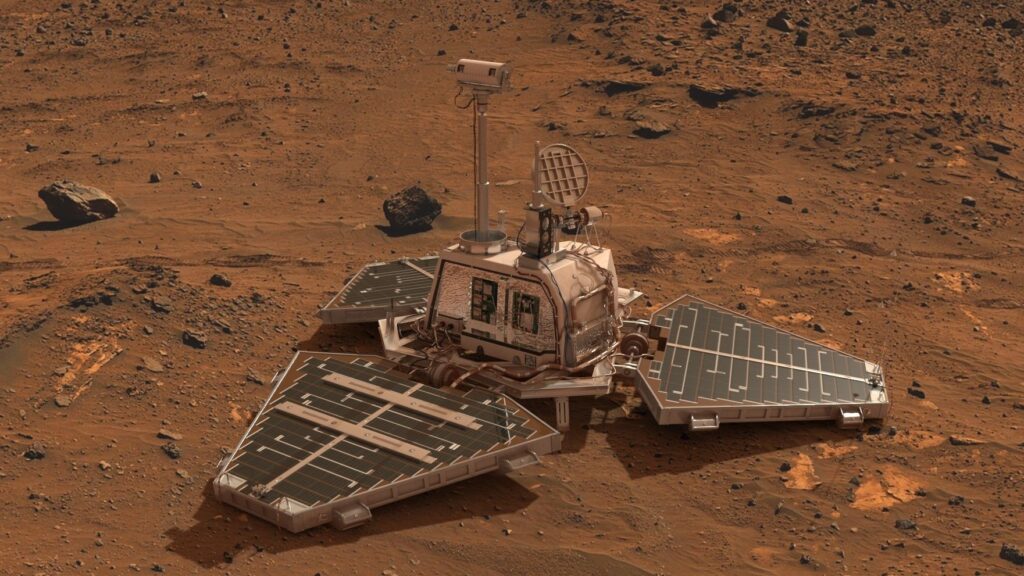
Today, AI is an integral part of almost every space mission, from Earth observation satellites to deep space probes.
One milestone that really stands out to me was the use of AI in the Kepler space telescope mission. The way machine learning algorithms sifted through enormous amounts of data to identify potential exoplanets was mind-blowing. It’s like finding a needle in a cosmic haystack, and AI made it possible!
AI in Mission Planning and Spacecraft Design
Now, let me tell you about how AI is changing the game in mission planning and spacecraft design. It’s like having a super-smart assistant that never sleeps! AI algorithms are optimizing mission trajectories in ways that human engineers could never achieve alone. They’re finding the most fuel-efficient routes, which is crucial when you’re dealing with the mind-boggling distances of space.
These simulations can test thousands of design variations in the time it would take humans to test just a handful. It’s not just about speed, though – AI is coming up with innovative designs that humans might never have considered.
But here’s the really cool part: predictive maintenance. AI systems can now predict when a component on a spacecraft might fail, long before it actually happens. This is huge for missions that last years or even decades. It’s like having a crystal ball that can peer into the future health of a spacecraft!
Autonomous Exploration: AI-Powered Rovers and Probes
Okay, let’s talk about my favorite topic: rovers! The Mars rovers, from Curiosity to Perseverance, are like the rock stars of space exploration. And guess what? They’re powered by some seriously smart AI. These rovers can make decisions on their own, choosing safe paths and even deciding which rocks are interesting enough to study.
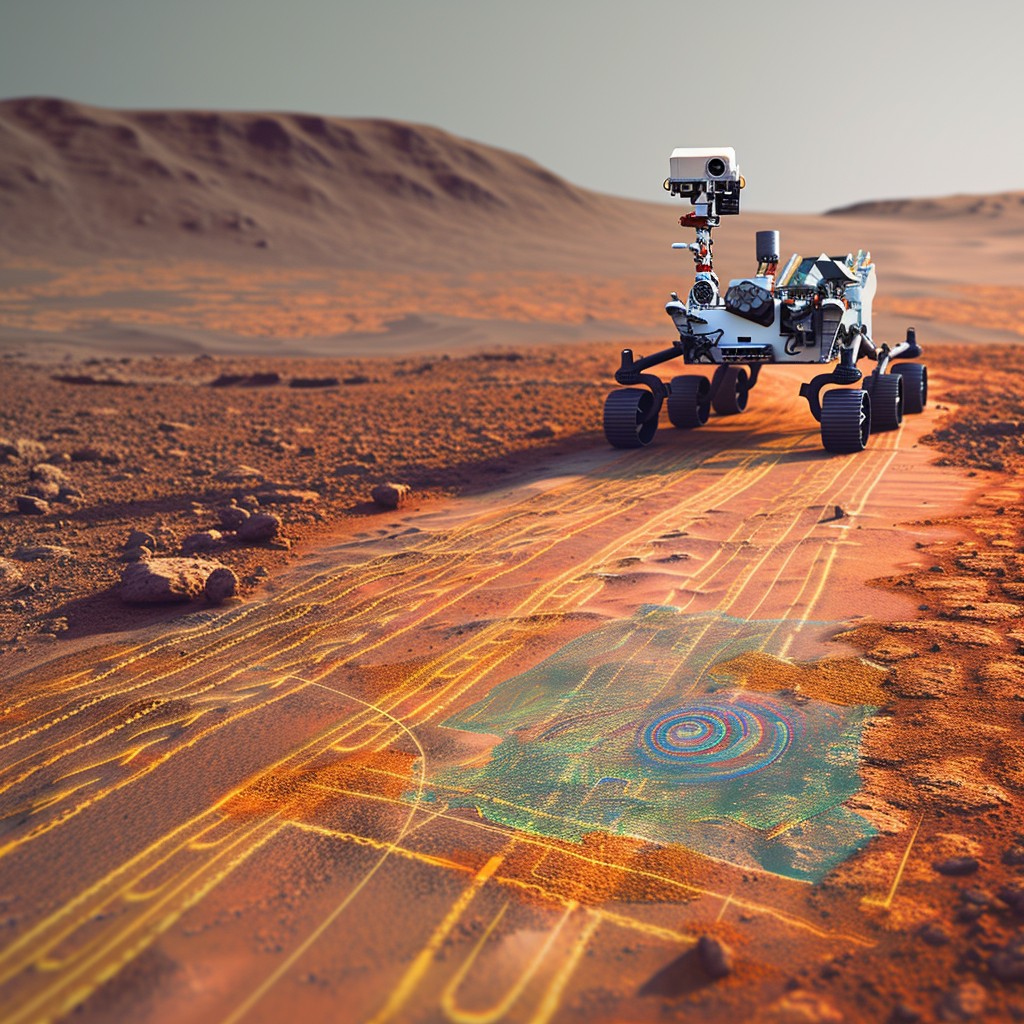
It’s mind-blowing when you think about it – these machines are making scientific decisions millions of miles away from Earth!
People stayed up all night to watch the Perseverance landing in 2021. The way it used AI to navigate the treacherous Martian terrain during its descent was nail-biting stuff. It’s this kind of autonomous decision-making that’s going to be crucial as we explore even more distant and challenging environments.
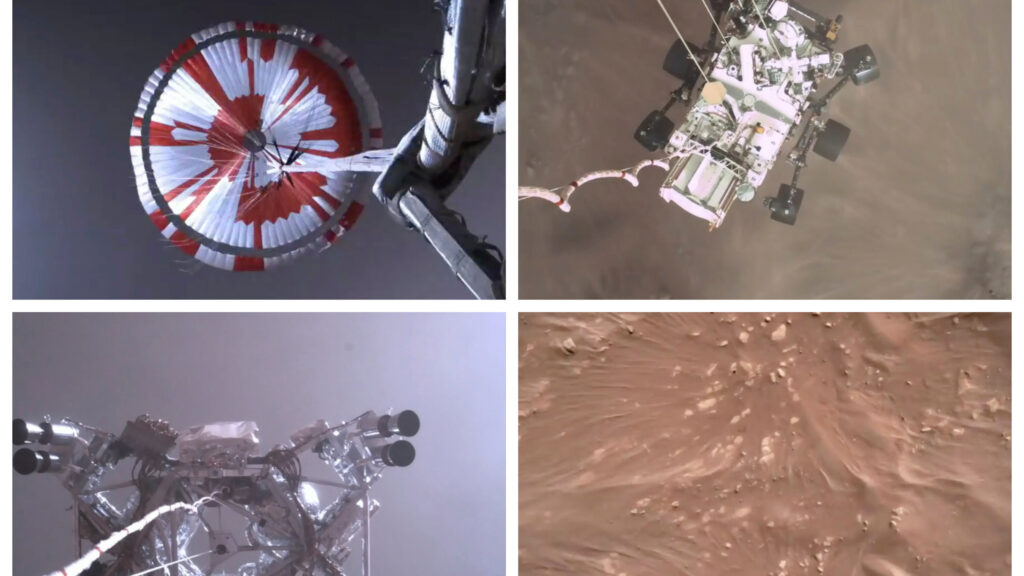
And hold onto your hats, because the future is going to be even more exciting. There’s talk of using swarm robotics in space exploration.
Imagine a group of small, AI-powered robots working together to explore an asteroid or the moons of Jupiter. It’s not science fiction anymore – it’s the future of space exploration!
Deep Space Navigation and Communication
Now, let’s venture into deep space, where AI is truly coming into its own. Navigating a spacecraft across millions of miles of space requires incredible precision, and AI is making it possible.
These systems can make split-second adjustments to keep spacecraft on course, even when they’re so far away that commands from Earth would take hours to arrive.
But it’s not just about navigation. AI is also revolutionizing how we communicate across vast distances. As someone who’s always been fascinated by the challenges of deep space communication, I find this absolutely thrilling. AI algorithms can optimize data transmission, ensuring that we get the most crucial information back from our distant explorers.
And here’s something that blows my mind: autonomous decision-making in long-distance missions. As we push further into the solar system and beyond, the time lag in communications becomes a real problem. AI systems on board spacecraft can make critical decisions without waiting for instructions from Earth. It’s like giving our space explorers their own brains!
Data Analysis and Scientific Discovery
Hold onto your telescopes, folks, because this is where AI is really shining! The amount of data we’re collecting from space is astronomical. We’re talking about petabytes of information from telescopes, probes, and satellites. There’s no way human scientists could process all this data on their own.
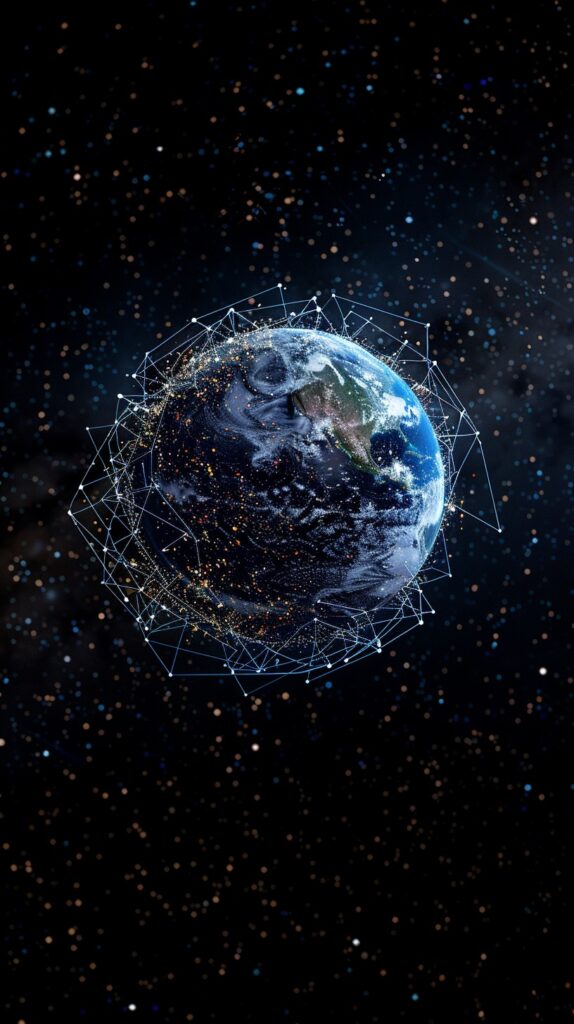
Enter AI and machine learning. These technologies are sifting through vast amounts of telescope data, identifying patterns and anomalies that humans might miss. I remember the buzz in the scientific community when AI helped discover an eighth planet in the Kepler-90 system. It was like finding a new island on Earth!
AI is also revolutionizing the search for exoplanets. It analyzes subtle changes in star brightness that could indicate an orbiting planet. And in astrophysics research, machine learning is helping us understand complex phenomena like dark matter and the formation of galaxies. It’s like having a tireless research assistant with superhuman abilities!
AI and Human Collaboration in Space
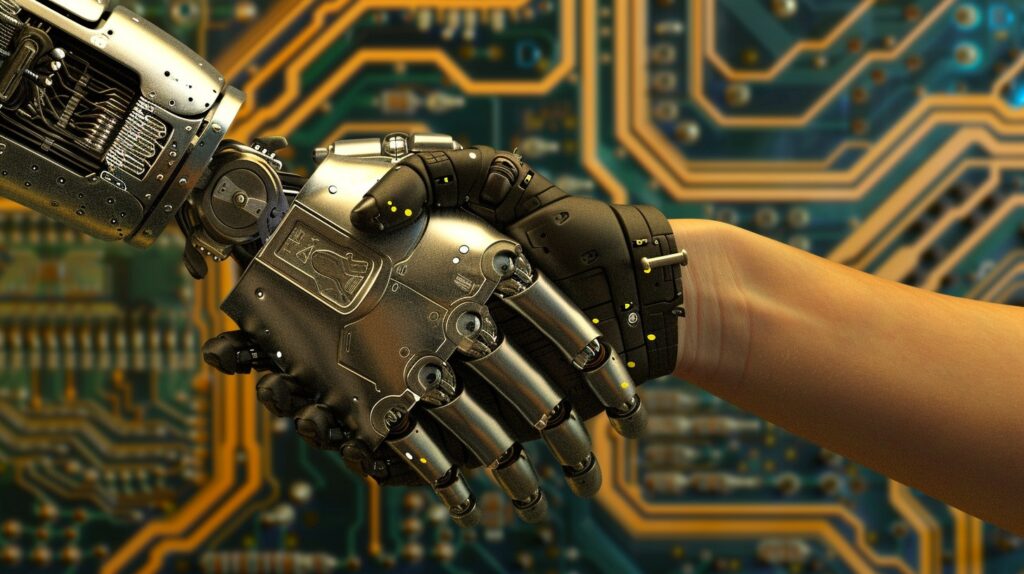
Now, don’t worry – AI isn’t replacing human astronauts anytime soon. Instead, it’s becoming their best friend in space. AI systems are enhancing astronaut safety by constantly monitoring health indicators and environmental conditions. It’s like having a super-smart doctor on board at all times.
On the International Space Station, AI assistants are helping with day-to-day operations, freeing up astronauts to focus on scientific research and other critical tasks.
Looking to the future, the collaboration between AI and humans in space exploration is going to be crucial. As we plan long-duration missions to Mars and beyond, AI will be essential in managing complex systems and helping humans adapt to the challenges of deep space travel. It’s going to be a partnership that takes us further than we’ve ever gone before.
Conclusion
As we wrap up our journey through the role of AI in modern space exploration, I can’t help but feel a sense of awe and excitement. We’re living in an era where the boundaries between science fiction and reality are blurring, and AI is at the forefront of this cosmic revolution.
From planning missions and designing spacecraft to analyzing data from the farthest reaches of the universe, AI is enhancing every aspect of space exploration. It’s making our missions more efficient, our discoveries more profound, and our dreams of exploring the cosmos more achievable than ever before.
But here’s the thing – we’re still at the beginning of this journey. The potential for AI in space exploration is limitless, and I can’t wait to see what the future holds. Will AI help us discover life on other planets? Will it guide us to the edges of our galaxy? The possibilities are as vast as space itself.
So, the next time you look up at the night sky, remember that it’s not just human ingenuity reaching for the stars – it’s human ingenuity amplified by the power of artificial intelligence. And together, there’s no telling how far we’ll go.
What are your thoughts on the role of AI in space exploration? Do you have any experiences or insights to share? I’d love to hear from you in the comments below. Let’s keep the conversation going and our eyes on the stars!

